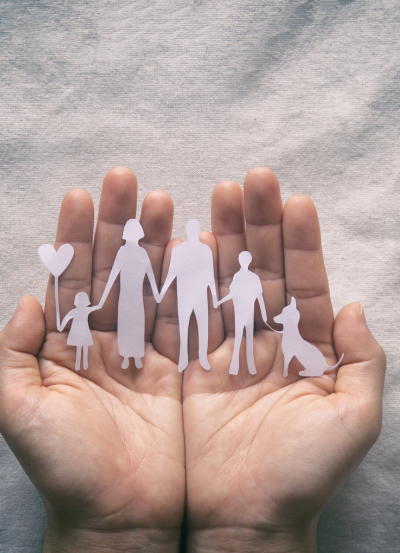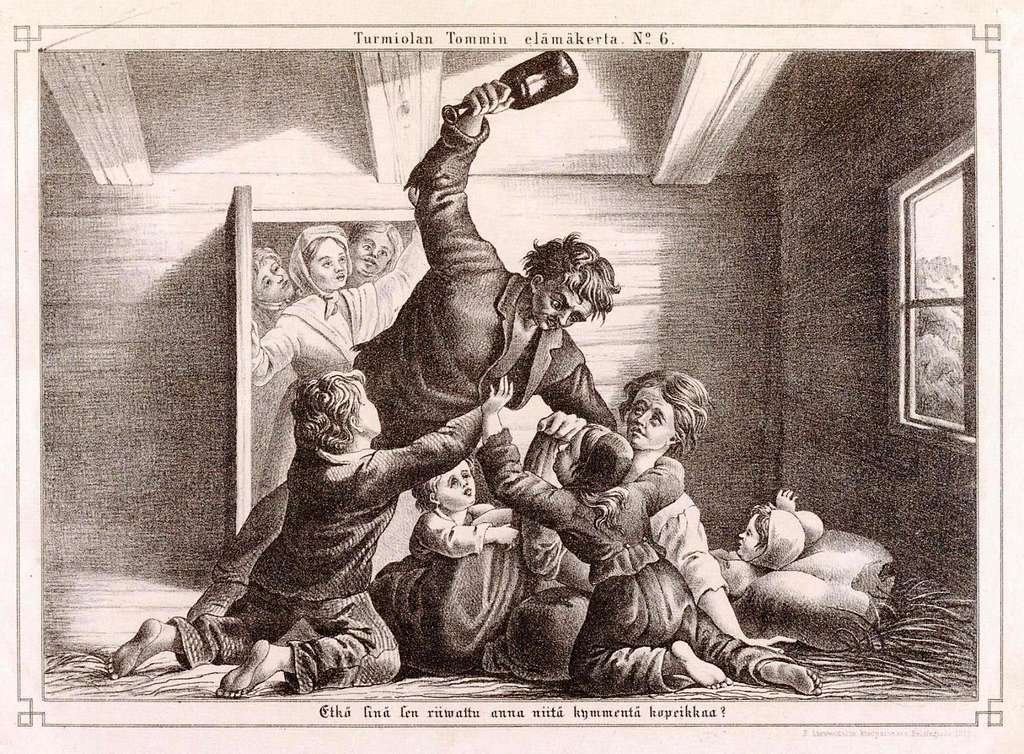Domestic violence is a pervasive issue impacting individuals across various demographics, ethnicities, and socioeconomic statuses. Its repercussions extend far beyond immediate physical harm, embedding deep psychological scars that can persist for years. The extent and nature of these long-term effects on mental health are a growing area of concern for mental health professionals, researchers, and policymakers.
Understanding these long-term effects is crucial because:
- Scope of Impact: An estimated one in three women and one in six men experience domestic violence at some point in their lives.
- Complexity of Effects: The mental health consequences are multifaceted, involving various psychological disorders and emotional disturbances.
- Intergenerational Trauma: The impact often extends to children, perpetuating a cycle of abuse and mental health issues.
Psychological Disorders
Victims of domestic violence are at a heightened risk of developing several psychological disorders. Some of the most common include:
Post-Traumatic Stress Disorder (PTSD):
Symptoms include flashbacks, nightmares, and severe anxiety. Often accompanied by physical symptoms such as headaches or gastrointestinal issues.
Depression:
Persistent feelings of sadness, worthlessness, and a lack of interest in daily activities. Can lead to severe outcomes like self-harm or suicide.
Anxiety Disorders:
Excessive worrying, panic attacks, and a constant feeling of dread. May result in social withdrawal and difficulty maintaining relationships.
Emotional Disturbances
In addition to diagnosable disorders, victims often experience various emotional disturbances, such as:
- Low Self-Esteem: Prolonged exposure to abuse can erode one’s sense of self-worth and self-confidence.
- Trust Issues: Difficulty in forming trusting relationships, impacting both personal and professional lives.
- Guilt and Shame: Many victims blame themselves for the abuse, which can lead to perpetual feelings of guilt and shame.
Coping Mechanisms
To manage these overwhelming mental health challenges, victims often resort to various coping mechanisms, some of which may not be healthy, such as:
- Substance Abuse: Alcohol and drugs are commonly used to numb emotional pain.
- Escapism: Engaging in behaviours that provide temporary relief but do not address the root cause, such as compulsive spending or excessive work.
Importance of Support Systems

A robust support system can significantly impact the mental health recovery of domestic violence victims. Effective support systems may include:
- Professional Mental Health Services: Therapists, counsellors, and support groups can provide essential guidance and intervention.
- Community Support: Family, friends, and community organisations can offer emotional and practical assistance.
In recognising the far-reaching impact of domestic violence on mental health, it becomes evident that addressing these issues requires a multi-faceted approach. This involves not only providing immediate support but also long-term strategies to help victims rebuild their lives.
Understanding Domestic Violence: An Overview
Domestic violence refers to a pattern of behaviour used by one partner to maintain power and control over another partner in an intimate relationship. However, it is not reserved to couples. In other words, domestic violence happens in any type of relationship! therefore, it can manifest in various forms, including physical, emotional, psychological, economic, and sexual abuse. Each form of abuse is detrimental and has severe implications for the victim’s overall well-being.
Forms of Domestic Violence
Physical Abuse: Involves any intentional use of physical force with the potential for causing injury, harm, disability, or death. Examples include hitting, slapping, pushing, and using weapons.

Emotional Abuse: Includes behaviours that harm the victim’s self-worth or emotional well-being. Examples include name-calling, manipulation, and isolating the victim from friends or family.
Psychological Abuse: This form of abuse includes intimidation, threats of harm, and destruction of property. It aims to instil fear and control over the victim.
Economic Abuse: Involves controlling a victim’s financial resources, limiting their access to funds, or forbidding them from working, thereby making the victim financially dependent on the abuser.
Sexual Abuse: Encompasses non-consensual sexual contact, forced sexual activities, or degrading sexual acts meant to demean the victim.
Factors Contributing to Domestic Violence
Several factors contribute to the occurrence of domestic violence:
Societal Norms: Prevailing beliefs about gender roles and power dynamics often perpetuate abusive behaviours.
Economic Stress: Financial instability can exacerbate tensions within a relationship, leading to abusive conduct.
Substance Abuse: Alcohol and drug use may increase the likelihood of violent behaviour.
Past Experiences: Individuals who have witnessed or experienced violence in their household are more likely to exhibit violent behaviours in their relationships.
Prevalence and Types of Domestic Violence
Domestic violence is a pervasive issue affecting millions worldwide. It crosses all socio-economic, racial, and cultural boundaries. According to the World Health Organisation (WHO), approximately one in three women globally have been subjected to either physical and/or sexual intimate partner violence or non-partner sexual violence in their lifetime.
Physical Violence
Physical violence involves the use of physical force against another person, leading to injury, harm, or even death. Some examples include:
Hitting, slapping, punching, or kicking. Pushing or shoving. Strangling or choking. Using a weapon or object to inflict harm.
Emotional and Psychological Abuse
Emotional and psychological abuse attempts to undermine an individual’s sense of self-worth and mental well-being. It includes:
Insults, belittlement, and humiliation. Manipulation and gaslighting. Isolation from friends and family. Threats of harm or abandonment.
Sexual Violence
Sexual violence encompasses any sexual act performed against someone’s will. It includes:
Rape and sexual assault. Forcing the victim to perform sexual acts. Sexual coercion and harassment. Unwanted sexual contact or exposure.
Economic Abuse
Economic abuse involves controlling a person’s access to financial resources, thus limiting their independence. Examples include:
Restricting access to money or bank accounts. Forbidding employment or education opportunities. Stealing or misappropriating funds. Forcing financial dependence on the abuser.

Stalking and Surveillance
Stalking and surveillance consist of repeated, unwanted attention and monitoring that creates fear and stress. This can include:
Persistent, unwanted contact via calls, texts, or emails.
Following or spying on the victim.
Using technology to track the victim’s movements.
Showing up uninvited at the vi
Immediate Psychological Impact of Domestic Violence
Domestic violence brings numerous immediate psychological impacts on victims. The following effects are commonly observed:
Acute Stress Reaction: Victims often experience an intense acute stress reaction shortly after an incident. This reaction can include symptoms like rapid heartbeat, sweating, and shaking, which are part of the body’s natural fight-or-flight response.
Anxiety: Victims frequently report heightened anxiety, often tied to the unpredictability of the abuse and fear of recurrence. This anxiety can manifest as constant worry, panic attacks, and difficulty concentrating.
Depression: The onset of depressive symptoms can be immediate, resulting from feelings of helplessness and hopelessness. These symptoms might include persistent sadness, crying spells, and a loss of interest in previously enjoyable activities.
Hypervigilance: Constant alertness and an exaggerated startle response are common among victims. They may feel perpetually on edge, always expecting another incident.
Insomnia: Difficulties sleeping, including trouble falling asleep, staying asleep, or experiencing nightmares, are frequent issues. These sleep disturbances further exacerbate other psychological effects.
Low Self-Esteem: Emotional and verbal abuse can significantly erode a victim’s self-esteem. They may start to believe negative statements made about them by the abuser, fostering feelings of worthlessness.
Guilt and Self-Blame: Many victims experience misplaced guilt and self-blame for the abuse. Societal myths and abuser manipulation often contribute to these feelings, making victims think they could have prevented the abuse.
Isolation: Abusers commonly isolate victims from friends and family, resulting in feelings of loneliness. This isolation can increase dependence on the abuser and decrease opportunities to seek help.
Dissociation: Some victims experience dissociation as a means to cope with overwhelming stress. This can involve a sense of detachment from reality or feeling disconnected from one’s body and surroundings.
Emotional Numbness: In some cases, victims may become emotionally numb as a defence mechanism. This numbness is an attempt to protect themselves from the intense emotions induced by the abuse.
Coping strategies adopted during the immediate aftermath of domestic violence often influence the long-term mental health outcomes for victims. Understanding these impacts can help in formulating effective support and intervention strategies.
The Long-term Psychological Effects on Victims
Domestic violence creates a persistent impact on the psychological well-being of its victims. These effects can be extensive and multifaceted, often manifesting long after the abuse has occurred.
Common Psychological Issues
Post-Traumatic Stress Disorder (PTSD)
Victims frequently relive the traumatic events. Symptoms include flashbacks, nightmares, and severe anxiety.
Depression
Prolonged sadness and loss of interest in daily activities. Victims may exhibit changes in appetite and sleep patterns.
Anxiety Disorders
Includes generalised anxiety disorder, social anxiety, and panic attacks. Constant worry and heightened tension are common.
Cognitive Impairments
Memory Problems
Difficulty in recalling specific events or details. Concentration issues, which can impede daily functioning.
Decision-making Difficulties
Struggles with making choices or solving problems effectively. Impairments can follow even minor decisions.
Interpersonal Relationships
Trust Issues
Difficulty in forming or maintaining relationships. Fear of betrayal or further victimisation.
Social Withdrawal
Isolating from friends and family. Avoiding social interactions due to fear or shame.
Self-Perception and Identity
Low Self-esteem
Feeling unworthy or undeserving of love and respect. Continual self-blame and self-criticism.
Identity Crisis
Struggles with defining oneself outside of the abuse. Loss of a sense of personal identity and purpose.
Behavioural Changes
Avoidance Behaviour
Avoiding certain places, people, or situations that trigger memories. Engaging in avoidance can limit personal and professional opportunities.
Self-destructive Behaviour
Substance abuse as a coping mechanism. Engaging in risky behaviours.
Chronic Health Issues
Somatisation
Manifesting psychological distress through physical symptoms. Common issues include gastrointestinal problems, headaches, and chronic pain.
Long-term Therapy Needs
Extended Psychological Treatment
Continuous need for counselling and mental health services. Potential requirement for specialised therapies such as EMDR.
Understanding these profound long-term psychological effects underscores the importance of providing comprehensive support to domestic violence victims. They may face an enduring journey of healing, necessitating consistent and compassionate care. The complexity of these impacts requires tailored interventions that address the broad spectrum of psychological ramifications.
Emotional and Psychological Disorders Stemming from Domestic Violence
Domestic violence often leads to a range of emotional and psychological disorders that can persist long after the abuse has ended. These disorders affect individuals’ functioning in various aspects of their lives and may require long-term therapeutic intervention.
Anxiety Disorders
Domestic violence survivors frequently develop anxiety disorders, including:
- Generalised Anxiety Disorder (GAD): Persistent, excessive worry about everyday things.
- Panic Disorder: Experiencing sudden and repeated attacks of intense fear and discomfort.
- Social Anxiety Disorder: Intense fear of social situations, leading to avoidance of interactions.
Depression
Depression is prevalent among survivors, manifesting as:
- Major Depressive Disorder: A persistent feeling of sadness or loss of interest that can lead to a range of emotional and physical problems.
- Dysthymia: A chronic, low-level form of depression.
Post-Traumatic Stress Disorder (PTSD)
PTSD is common, characterised by:
- Flashbacks: Reliving the trauma as if it were happening again.
- Nightmares: Disturbing dreams related to the traumatic event.
- Severe Anxiety: heightened levels of anxiety and hypervigilance.
Anger and Emotional Dysregulation
Survivors may struggle with:
- Anger Management Issues: Difficulty controlling emotional outbursts and irritability.
- Emotional Numbness: Difficulty experiencing a range of emotions, leading to detachment and an inability to form healthy relationships.
Low Self-Esteem and Self-Worth
Abuse can severely impact one’s self-esteem, causing:
- Self-Criticism: Constant negative self-talk and feelings of worthlessness.
- Self-Isolation: Withdrawing from social interactions due to perceived inadequacies.
Trust Issues
Developing trust issues is common, often resulting in:
- Hypervigilance: Constantly being on guard, anticipating danger.
- Relationship Challenges: Difficulty forming or maintaining healthy and trusting relationships.
Substance Abuse
Some survivors turn to substance abuse as a coping mechanism, leading to:
- Alcohol Dependence: Using alcohol to numb the pain or escape reality.
- Drug Addiction: Relying on illicit substances to cope with emotional pain.
Suicidability
The profound impact of domestic violence can lead to suicidal thoughts and behaviours, necessitating:
- Immediate Intervention: Professional mental health support to manage these crises.
- Long-term Care: Ongoing therapy to address underlying issues contributing to suicidal ideations.
Dissociative Disorders
Survivors sometimes experience:
- Depersonalisation: Feeling detached from oneself.
- Dissociative Amnesia: Memory gaps related to traumatic events.
Awareness of these potential disorders is essential for providing appropriate support and intervention to individuals affected by domestic violence.
The Impact on Self-esteem and Self-worth
Domestic violence deeply affects an individual’s self-esteem and self-worth. Victims often find themselves questioning their value and capabilities due to sustained abuse. This constant assault on their self-perception can lead to several profound, long-term issues.
Diminished Self-esteem
Victims of domestic violence commonly experience a collapse in self-esteem. This damage arises from:
- Consistent belittlement: Abusers frequently undermine their partner’s worth through insults and derogatory remarks.
- Isolation: Abusers may isolate victims from friends and family, eroding their social support systems and, consequently, their confidence.
- Control and manipulation: Tactics like gaslighting can make victims doubt their judgments and perceptions.
Loss of Self-worth
Long-term exposure to domestic violence instils a sense of worthlessness in victims. This stems from:
- Internalised blame: Victims often internalise the blame for their abuse, leading to feelings of guilt and unworthiness.
- Dependency: Abusers cultivate a dependency, making the victim feel incapable of existing independently.
- Shame and stigma: Society’s stigma attached to being a victim can also erode one’s sense of self-worth.
Psychological Consequences
The erosion of self-esteem and self-worth can lead to numerous psychological consequences:
- Depression: Persistent abuse and the ensuing loss of self-worth can drive individuals into severe depression.
- Anxiety: Constant fear of further abuse can lead to chronic anxiety.
- PTSD: Many victims develop Post-Traumatic Stress Disorder (PTSD), with symptoms like flashbacks and nightmares.
Long-term implications
The long-term implications of diminished self-esteem and self-worth are far-reaching:
- Career impact: Victims might avoid pursuing career advancements due to a lack of confidence.
- Relationship issues: They may struggle to form healthy relationships, fearing vulnerability and repeating past dynamics.
- Overall well-being: Continual self-doubt and low self-worth can disrupt overall life satisfaction and happiness.
Recovery and Healing
Healing from the impact of domestic violence on self-esteem and self-worth necessitates:
- Therapeutic intervention: Professional therapy can help victims rebuild confidence and self-worth.
- Support groups: Engaging with others who have had similar experiences can provide validation and encouragement.
- Self-care practices: Encouraging self-care and self-compassion is crucial in the journey towards recovery.
Trauma and Post-Traumatic Stress Disorder (PTSD)
Domestic violence often leaves survivors with deep, lasting trauma. Trauma can manifest in various ways, both mentally and physically. Survivors may experience frequent flashbacks, nightmares, and intense emotional distress when reminded of the abusive events. This reaction is a hallmark of post-traumatic stress disorder (PTSD).
Symptoms of PTSD
PTSD symptoms are categorised into four main types:
Intrusive memories:
Recurrent, unwanted distressing memories of the abuse. Reliving the trauma as if it were happening again (flashbacks). Upsetting dreams or nightmares about the traumatic event. Severe emotional distress or physical reactions to something that reminds them of the trauma.
Avoidance:
Avoiding places, activities, or people that remind them of the traumatic event. Avoiding thoughts and feelings related to the event.
Negative changes in thinking and mood:
Negative thoughts about oneself, others, or the world. Feelings of hopelessness. Memory problems, including not remembering important aspects of the traumatic event. Difficulty maintaining close relationships. Feeling detached from family and friends. Lack of interest in activities once enjoyed. Difficulty experiencing positive emotions. Feeling emotionally numb.
Changes in physical and emotional reactions:
Being easily startled or frightened. Always being on guard for danger. Self-destructive behaviour, such as drinking too much or driving too fast. Trouble sleeping. Trouble concentrating. Irritability, aggressive behaviour, or angry outbursts. Overwhelming guilt or shame.
Impact on Daily Life
PTSD significantly impacts a survivor’s daily functioning. They may find it challenging to hold steady employment due to frequent absenteeism triggered by stress or flashbacks. Social isolation is common because they might avoid places or people that remind them of their trauma. Relationships may suffer as trust and intimacy issues arise, making it difficult for survivors to form or maintain bonds.
Treatment Options
Effective treatment is crucial to help survivors manage PTSD. Therapy options include:
- Cognitive Behavioural Therapy (CBT): Helps change negative thought patterns.
- Eye Movement Desensitisation and Reprocessing (EMDR): Reduces distress associated with traumatic memories.
- Medications: Antidepressants or anti-anxiety medications may be prescribed.
Support groups offer a communal sense of understanding and shared experiences, aiding the healing process. Proper psychological interventions can significantly improve the quality of life for those affected.
The Ripple Effect: Impact on Family and Relationships
The enduring impact of domestic violence permeates familial bonds and relationships, often leading to multifaceted challenges. Both the victims and bystanders, especially children, experience significant psychological repercussions.
Effects on Children
- Emotional Disturbances: Children exposed to domestic violence may exhibit anxiety, depression, and post-traumatic stress disorder (PTSD). These conditions often persist into adulthood, manifesting in various ways.
- Behavioural Problems: Exposure to violence can lead to aggressive behaviour, academic struggles, and difficulty interacting socially. They might emulate abusive behaviours or become reclusive.
- Developmental Delays: Cognitive and emotional development can be significantly hampered, resulting in delays in achieving developmental milestones.
Impact on the Victim’s Relationship with Family
- Isolation: Victims may become isolated from their extended family due to the abuser’s controlling behaviours. This isolation deprives them of essential support networks.
- Trust Issues: Consistent exposure to manipulation and betrayal can lead to a pervasive mistrust of close family members, further complicating familial relationships.
- Role Reversal: Victims might assume protective roles, shielding their children from violence, which can alter the natural parent-child dynamics.
Consequences on Extended Family
- Emotional Toll: Witnessing a loved one endure abuse can cause significant emotional distress for extended family members. Feelings of helplessness and guilt are common.
- Strained Relationships: The continuous strain may lead to fragmented family relationships, with members feeling divided in their approach to helping the victim.
- Intergenerational Trauma: The effects of domestic violence can span generations, with trauma being passed down and affecting family dynamics long-term.
Effects on Social Relationships
- Eroded Self-Esteem: The victim’s confidence often diminishes, making it challenging to form new relationships or maintain existing ones. Friendships may deteriorate as the victim withdraws or the abuser enforces isolation.
- Communication Barriers: Long-term effects include difficulty in communicating effectively or forming trust-based relationships outside the family unit.
- Community Interaction: Engaging with the broader community can become daunting. Victims may avoid social gatherings, hindered by anxiety and fear of judgement.
The profound repercussions of domestic violence ripple through all aspects of the victim’s personal, familial, and social life, creating an intricate web of challenges that affect not only the present but also future generations.
Barriers to Seeking Help and Support
Victims of domestic violence face numerous obstacles when it comes to seeking help and support. These barriers can be categorised into emotional, social, and systemic hindrances.
Emotional Barriers
- Fear and Anxiety: Many victims fear retaliation from their abuser if they seek assistance. This fear can be compounded by concern for children’s safety and wellbeing.
- Shame and Guilt: Feelings of personal failure or responsibility for the abuse can prevent individuals from reaching out.
- Low Self-Esteem: Prolonged abuse can erode a person’s confidence, making them doubt their worthiness of help.
Social Barriers
- Isolation: Abusers often isolate their victims from friends, family, and social networks, limiting their access to support systems.
- Stigmatisation: Societal stigma around domestic violence can discourage victims from speaking out, fearing judgment or disbelief.
- Lack of Awareness: Many victims may not recognise the signs of abuse or may be unaware of available resources and support systems.
Systemic Barriers
- Legal and Financial Constraints: Navigating the legal system can be daunting and costly. Limited financial resources can make it difficult for victims to leave abusive situations.
- Insufficient Services: Inadequate or inaccessible shelter and support services can leave victims with limited options.
- Cultural and Language Barriers: Cultural norms may discourage seeking help, and language differences can make communication with service providers challenging.
Intersectional Factors
- Race and Ethnicity: Minority groups might face additional discrimination within support systems, making it tougher to secure help.
- Sexual Orientation and Gender Identity: LGBTQ+ individuals could face biases in services primarily designed for heterosexual relationships.
Understanding these barriers is crucial for developing effective interventions and support networks to assist victims of domestic violence.
The Role of Therapy and Counselling in Recovery
Therapy and counselling play pivotal roles in helping survivors of domestic violence navigate their recovery journey. These professional services aim to address both immediate crises and long-term emotional and psychological effects.
1. Emotional Healing: Therapy provides a safe space for survivors to process emotions such as fear, anger, and sadness. Counsellors assist by using techniques designed to help individuals express and understand these complex feelings.
2. Trauma-Focused Approaches: Various therapeutic approaches are specifically tailored for trauma recovery. These may include:
Cognitive Behavioural Therapy (CBT): Focuses on changing negative thought patterns. Eye Movement Desensitisation and Reprocessing (EMDR): Helps process and integrate traumatic memories. Dialectical Behaviour Therapy (DBT): Combines CBT with mindfulness strategies to manage emotional volatility.
3. Crisis Intervention: Immediate crisis intervention is crucial for survivors in the initial stages post-abuse. Counsellors provide strategies for safety planning, while offering emotional support to stabilise the individual’s immediate mental state.
4. Long-term Support: Recovery is an ongoing process. Counselling ensures consistent long-term support, helping survivors build resilience and develop healthier relationships. Follow-up sessions reinforce coping mechanisms learned during initial therapy.
5. Self-esteem and Empowerment: Domestic violence severely impacts self-worth. Therapy focuses on rebuilding self-esteem and empowering survivors, encouraging autonomy and self-advocacy.
6. Addressing Co-occurring Issues: Many survivors may deal with substance abuse, anxiety, or depression alongside trauma. Integrated therapy models, which address multiple issues concurrently, are highly effective.
7. Child and Family Therapy: When children are involved, family therapy becomes essential. It aims to support children who witnessed or experienced violence and helps re-establish healthy family dynamics.
8. Group Therapy: Support groups provide a community of individuals with shared experiences. They offer mutual support, reducing feelings of isolation and promoting collective healing.
9. Accessibility and Cultural Sensitivity: Ensuring therapy is accessible and culturally sensitive enhances its effectiveness. Services must consider linguistic, cultural, and socioeconomic factors to meet diverse needs.
In essence, therapy and counselling are fundamental components of the recovery process for survivors of domestic violence, aiding in emotional healing and the restoration of a stable, empowered life.
Support Systems and Resources for Victims
Victims of domestic violence require multiple layers of support and resources to aid in their recovery and to ensure their safety. Various organisations and services provide crucial assistance:
Hotlines and Helplines: Confidential hotlines, such as the National Domestic Violence Helpline, offer immediate support and advice, available 24⁄7. Trained professionals on these lines can provide counselling, safety planning, and referrals to local services.
Shelters and Safe Houses: Many communities offer shelters that provide temporary refuge for victims escaping abusive situations. These shelters often supply basic necessities, emotional support, and programmes aimed at independence.
Legal Assistance: Legal support is vital for obtaining protection orders, accessing custody rights, and navigating the criminal justice system. Many organisations offer free or low-cost legal services to domestic violence survivors.
Counselling and Therapy: Mental health professionals offer both individual and group therapy sessions to help victims process trauma. Therapy can be crucial for managing symptoms of PTSD, anxiety, and depression resulting from domestic violence.
Support Groups: Peer support groups allow survivors to connect with others who have similar experiences. Such groups can provide emotional validation, reduce feelings of isolation, and share practical advice.
Medical Services: Healthcare providers play a key role in identifying and treating physical injuries and mental health issues resulting from domestic violence. Medical records can also serve as critical evidence in legal proceedings.
Educational Programmes: Various community-based programmes focus on education about domestic violence, including awareness campaigns, self-defence classes, and workshops on healthy relationships.
Employment and Financial Assistance: Organisations often offer job training, employment support, and financial aid to help victims achieve economic independence and stability.
Several famous NGOs and bodies working in this area include:
- Women’s Aid: Provides education, shelter, and advocacy for women and children affected by domestic violence.
- The National Coalition Against Domestic Violence (NCADV): Focuses on societal change, policy advocacy, and support for victims.
- Refuge: Offers comprehensive services, including crisis helplines, shelters, and legal support.
- Legal Aid Societies: Present in various countries, these organisations help victims navigate legal challenges without financial burden.
Access to these resources can significantly impact a victim’s ability to rebuild their life after experiencing domestic violence. It is essential for communities to support these organisations and for victims to be aware of these available resources.
Policy and Legal Interventions
Policies and legal frameworks play a crucial role in addressing the long-term effects of domestic violence on mental health. Governments and organisations have implemented various interventions aimed at providing support and protection to survivors. These interventions can be categorised into laws, policies, and community-based initiatives.
Legislative Measures
Many countries have enacted laws specifically designed to combat domestic violence. Key legislative measures often include:
- Protection Orders: Legal orders restraining the abuser from contacting the survivor.
- Criminalisation of Domestic Violence: Making domestic violence a criminal offence with severe penalties.
- Mandatory Reporting: Requiring healthcare professionals to report cases of domestic violence.
Policies and Protocols
Specific policies and protocols have been developed to ensure coordinated efforts between various sectors. These include:
- Integrated Support Systems: Collaboration between law enforcement, social services, and healthcare providers.
- Funding for Services: Allocating funds for shelters, counselling services, and legal aid.
- Education and Training: Providing training for police, judges, and medical personnel on handling cases of domestic violence.
Community-Based Initiatives
Community involvement is essential in addressing and preventing domestic violence. Effective community-based initiatives often feature:
- Awareness Campaigns: Public education on the signs of domestic violence and available resources.
- Support Groups: Peer-led groups offering emotional support and practical advice to survivors.
- Hotlines and Helplines: 24⁄7 services providing immediate assistance and referrals.
International Standards
Several international organisations have established standards and guidelines to combat domestic violence worldwide. These standards include:
- The Istanbul Convention: A comprehensive legal framework for preventing and combating violence against women and domestic violence.
- United Nations’ Commitments: Initiatives like the Sustainable Development Goals (SDGs) aim to end all forms of violence against women and girls by 2030.
Access to Justice
Ensuring survivors have access to justice is fundamental. Measures to improve access to justice include:
- Legal Aid Services: Providing free or low-cost legal services for survivors.
- Victim Advocacy Programmes: Offering support throughout the legal process, from reporting to court proceedings.
- Specialised Courts and Tribunals: Establishing courts specifically for domestic violence cases to expedite and sensitise the legal process.
Adopting comprehensive policy and legal interventions significantly aids in mitigating the long-term mental health effects of domestic violence.
The Importance of Awareness and Education
Raising awareness and providing education about domestic violence are critical components in addressing its long-term effects on mental health. When individuals are educated about the signs and consequences of domestic violence, they are more likely to recognise and intervene in abusive situations.
Key Areas of Focus
Recognising Warning Signs: Education programmes should focus on helping people identify the early indicators of domestic violence. Recognising these signs can enable timely intervention and support for victims.
Mental Health Impacts: Understanding the profound mental health effects of domestic violence, such as depression, anxiety, and post-traumatic stress disorder (PTSD), is crucial. This knowledge can foster empathy and provide better support from family, friends, and professionals.
Support Systems: Training on building robust support systems is essential. This includes awareness of local resources such as shelters, hotlines, and counselling services that can aid victims in their recovery journey.
Legislation and Rights: Educating individuals about their legal rights and the protective measures available to them can empower victims to seek justice and protection.
Community Engagement: Community involvement can lead to the development of local policies and partnerships aimed at preventing domestic violence. Efforts should be made to engage community leaders, educators, and law enforcement in awareness campaigns.
Methods of Delivery
Workshops and Seminars: Hosting workshops and seminars can provide interactive and comprehensive education on the subject.
School Curricula: Integrating education about domestic violence into school curricula can inform younger populations about healthy relationships and the risks of abusive behaviours.
Media Campaigns: Utilising media platforms for awareness campaigns can reach a broader audience and stimulate public conversations about domestic violence and its impacts.
Online Resources: Websites and online courses can offer accessible information and support for individuals unable to attend in-person sessions.
Role of Healthcare Providers
Healthcare providers play a vital role in identifying and responding to domestic violence. Training programmes for healthcare professionals can equip them with the skills to recognise signs of abuse, provide appropriate referrals, and offer emotional support to victims.
Importance of Continuous Education
Educating individuals should not be a one-time effort but an ongoing process. Continuous education ensures that the latest information and strategies for dealing with domestic violence are disseminated, adapting to any new challenges or developments in this field.
Conclusion
The long-term effects of domestic violence on mental health are profound and multifaceted, leaving persistent scars that can manifest in various psychological disorders. Victims often grapple with mental health conditions that can extend far beyond the period of active abuse.
Anxiety Disorders: Chronic anxiety can develop due to the constant state of fear and unpredictability in abusive environments. This can include generalised anxiety disorder, panic attacks, and social anxiety.
Depressive Disorders: Sustained exposure to domestic violence frequently leads to depression. Symptoms may encompass intense sadness, loss of interest in previously enjoyed activities, and even suicidal thoughts or behaviours.
Post-Traumatic Stress Disorder (PTSD): A significant number of domestic violence survivors exhibit symptoms of PTSD. These can include flashbacks, nightmares, severe anxiety, and uncontrollable thoughts about the abuse.
Substance Abuse: In an attempt to cope with the emotional pain, some survivors turn to alcohol or drugs. This can further complicate their mental health status by creating additional health and social problems.
Low Self-Esteem: The degradation and control exerted by abusers can leave victims with severely diminished self-worth and confidence, affecting their ability to form healthy relationships in the future.
Trust Issues: Trust, once broken repeatedly in abusive relationships, becomes difficult to rebuild. This distrust can obstruct future personal and professional relationships.
Social Isolation: Abusers often isolate their victims from support networks. This isolation can persist, making it difficult for survivors to reach out for help or support even after the abuse has ended.
Cognitive Impairment: Continuous stress and trauma can lead to difficulties in concentration, memory loss, and impaired decision-making, affecting daily functioning and quality of life.
Treating the mental health consequences of domestic violence requires comprehensive and long-term care strategies. Evidence-based therapies, such as Cognitive Behavioural Therapy (CBT) and Eye Movement Desensitisation and Reprocessing (EMDR), have shown promise in alleviating symptoms. Additionally, social support networks, both formal (such as support groups and counselling services) and informal (such as friends and family), play a crucial role in recovery.
Recognising the severe and enduring impact of domestic violence on mental health underscores the importance of early intervention and ongoing support for victims. Comprehensive care and an established support system are essential to mitigate these long-term effects.













